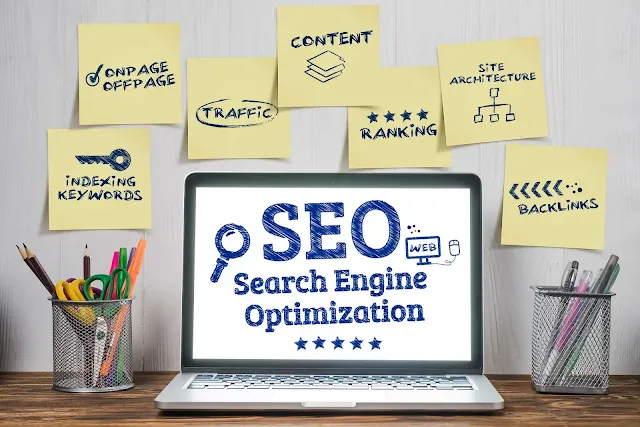 |
| Search Engine Optimization (SEO) |
In the digital world, everything's moving at a tremendous pace and that includes search engine optimization (SEO). For example, from how people search the web for jobs or just for basic information, to what they pay, the way they use the internet, all of these things have changed a huge amount over the years.
Nowadays, some industries are completely disrupted by SEO – like online shopping, which often relies on organic search engines, or online advertising, which relies on social networks. So this content will be covering the basics of SEO and why it's so important for marketers today. Keep reading!
What is SEO?
 |
| SEO |
SEO stands for Search Engine Optimization, as the term implies (SEO), and refers to optimizing your website in order to achieve higher rankings in search engine results. This type of SEO focuses mainly on improving link authority on your site, by increasing the number of authoritative links to it. With that said, even though SEO takes place after you've paid for your website to gain more visibility, it doesn't stop there.
They also look to optimize their website specifically for users, by creating mobile-friendly pages and making sure there are many ways to navigate around the website. As technology advances, it becomes easier to use apps that link to websites or obtain information directly from them. The internet itself is becoming less cluttered for us, meaning we're more likely to find an answer when searching for information.
In fact, there are some experts who believe that SEO has become one of the top priorities over the past couple of decades and that's because it helps businesses grow.
How does SEO work?
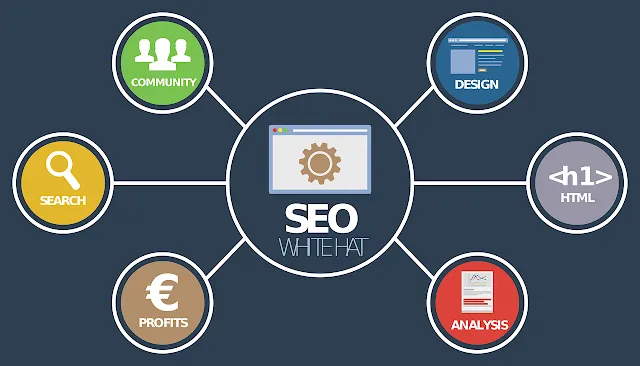 |
| Search Engine Optimization |
SEO stands for search engine optimization, and in simple terms, it means optimizing a website to make it rank higher on search engines. A site that ranks high in natural search engines like Google, Yahoo! and Bing will always have a chance at winning organic rankings as search engines like Google, Yahoo!, and Bing see how users actually search for things on the web, so by optimizing your website to make it better on those search engines, you become more popular.
This is where a good website begins. Now, let’s take an example: imagine a local bakery with 50 employees and a website where people order their favorite desserts online. They are now able to advertise their offerings and get more consumers who want to try their new baked goods. You might think this kind of scenario only happens to big companies with a large budget and manpower but SEO has been around long enough that even small businesses can benefit from the power that SEO can bring them.
The best part is that most businesses don’t need huge amounts of money to begin making a difference in their company culture. Small businesses can achieve these kinds of results through SEO. SEO works by providing your website with more authority and more links – both on your own websites and also those of other websites. You can do this by incorporating several different elements into your website that drive increased attention, including meta tags and keywords.
All of this depends largely on the overall topic your website covers. On the whole, SEO can be used in conjunction with video content, which allows your audience to engage with your brand rather than just read your articles.
Why Should I Learn SEO?
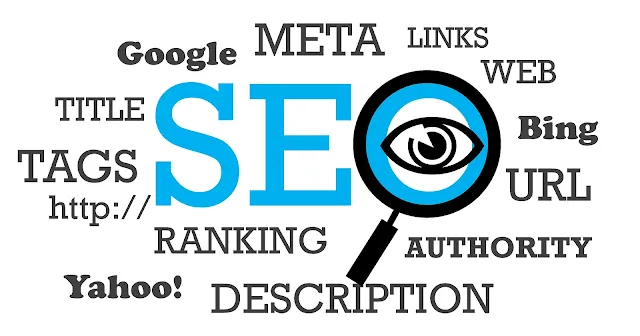 |
| SEO |
The field of SEO marketing is rapidly expanding. According to Statista, 2200 brands used SEO tactics to generate an average of $16 to $45 in 2019. That means that the internet is becoming increasingly competitive in terms of optimizing SEO campaigns on their own websites. This competition is expected to only accelerate over the coming years, and many firms will need to take advantage of this growth to thrive. So what should you be doing to stay ahead of the curve?
As you start thinking about why you should know about SEO, consider this: People who start making use of SEO in their digital marketing efforts tend to be less engaged with the overall brand than those who aren’t. They’re likely to leave reviews and recommend other sites. On the flip side, if everyone follows their rules of advertising their products, then they could lose money from losing new followers that choose not to buy. This is where SEO comes in and helps make sure your brand is successful.
How Can I Use SEO to Increase My Visitor Traffic?
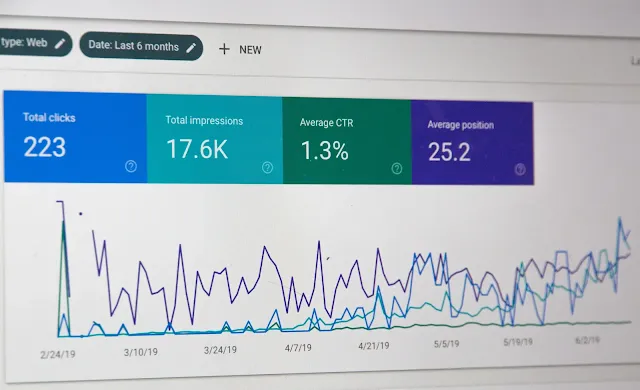 |
| Website Traffic |
Like any online marketing tool worth investing in, whether you’re running a big or small business, SEO plays an important role in driving visitor traffic. However, here are three key areas that will make a massive difference. Let’s discuss each of them and how they help optimize a website:
Content Marketing:
 |
| Content Marketing |
As mentioned above, content marketing is a core component of SEO. But don’t think that just having excellent content will do wonders. To ensure maximum results, consider adding meta tags to your blog posts, websites, and email signature to catch people’s attention.
These meta tags give your website visitors valuable information about your product and enable Google to better serve searchers, making them more engaged and returning your pages. Your meta tags also make your site more suitable to search engines like Google.
Content marketing also improves your meta tag visibility. By boosting meta tag visibility, Google can better determine which website pages to display for searchers and provide higher value — even if your page doesn’t have a perfect title.
SEO is also instrumental in helping businesses like eBay create a connection between their store’s image and its target audience. Their images are highly recommended by searchers looking for a great deal.
Backlinks:
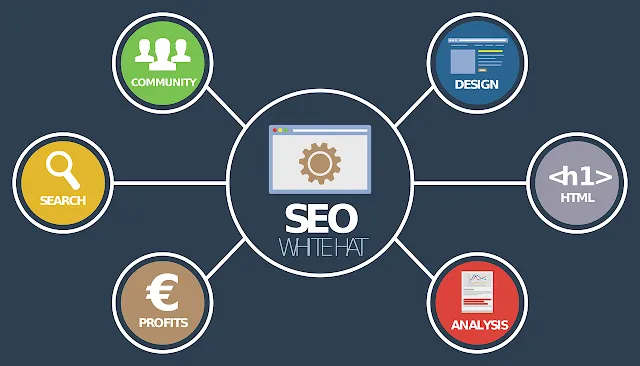 |
| Backlinks |
Backlinks are extensions of Google’s authoritative link network (i.e. links that are authoritative) to other websites. In essence, backlinks are pieces of informational or authoritative content placed on other websites that other users, often referred to as partners, link to. Examples of backlinks found on Facebook, Twitter, YouTube, Instagram, YouTube, and other social media platforms include Facebook advertisements, Wikipedia articles, Google news feed, and Google maps.
All of these factors improve the quality of your website and encourage visitors to return. Backlinks help your website become more visible and search engines more aware of your site. Backlinks are more important for mobile search engines like Apple, Samsung, and Google Mobile. Many mobile search engines would be unable to show adverts to their users without them.
As your SEO skills improve, you will be ready to incorporate further practicality into your websites. From there, you will see less reliance on paid promotions but still rely heavily on organic search engine rankings. A good starting point for this is implementing keyword research to identify keywords that will be most beneficial to your business. After that, it's vital to generate compelling material that demonstrates your competence in the field. Here’s a quick overview of some methods that you can utilize to create content that attracts searchers.
Creating Helpful Content:
 |
| HelpfulContent |
Not only does content marketing support SEO, but it also creates quality content. Not only is content marketing a must for organic SEO, but it should be included in all kinds of digital marketing strategies as well. While creating useful content is impossible in every case, you can still manage it effectively in order to make that content valuable. There are several different ways you can build useful content.
Keep your content fresh and engaging. Make it easy to read, without forcing searchers to go back and forth through long lists of steps. Think strategically to set up writing processes throughout your organization where writers work with managers and employees to craft articles/videos that convey your core message. Also, organize social media to engage your target audience with helpful content.
Post a Comment